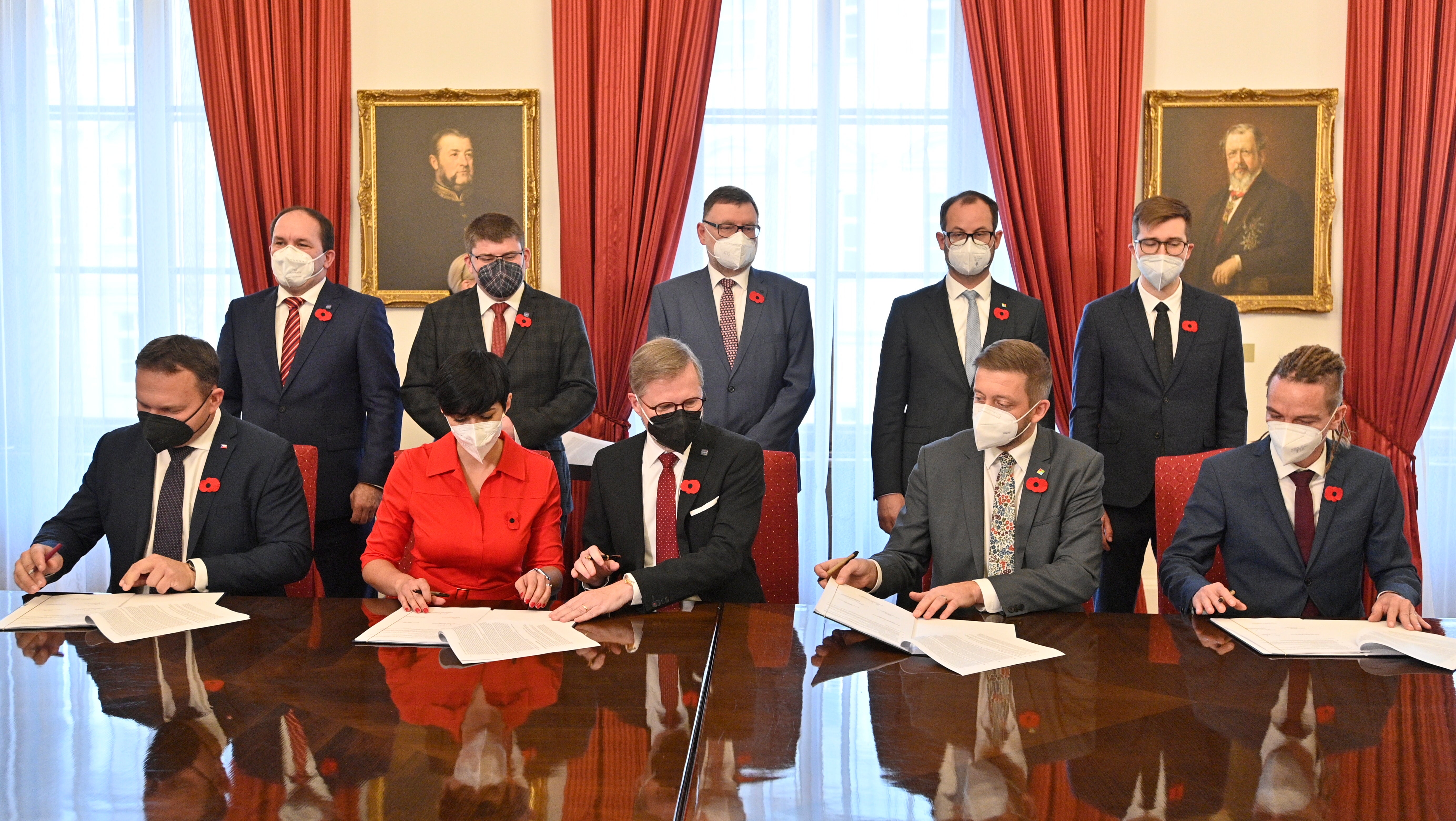Parties sign power-sharing deal to form new Czech government
Two party coalitions that emerged as winners of the Czech Republic's parliamentary election have signed a power-sharing deal to govern

Your support helps us to tell the story
From reproductive rights to climate change to Big Tech, The Independent is on the ground when the story is developing. Whether it's investigating the financials of Elon Musk's pro-Trump PAC or producing our latest documentary, 'The A Word', which shines a light on the American women fighting for reproductive rights, we know how important it is to parse out the facts from the messaging.
At such a critical moment in US history, we need reporters on the ground. Your donation allows us to keep sending journalists to speak to both sides of the story.
The Independent is trusted by Americans across the entire political spectrum. And unlike many other quality news outlets, we choose not to lock Americans out of our reporting and analysis with paywalls. We believe quality journalism should be available to everyone, paid for by those who can afford it.
Your support makes all the difference.The Czech Republic gained a new government on Monday after two party coalitions that garnered a sizeable chunk of votes in the country's parliamentary election last month signed a power-sharing deal.
A three-party, liberal-conservative coalition dubbed Together, composed of the Civic Democratic Party, Christian Democrats and the TOP 09 party, led the election with a 27.8% share of the vote.
Together teamed up with a center-left liberal coalition made up of the Pirate Party and STAN - a group of mayors - which came in third place with 15.6% of votes.
The new partnership will hold a 108-seat majority in the the 200-seat lower house of Parliament relegating outgoing populist Prime Minister Andrej Babis and his centrist ANO (YES) movement to the opposition.
“We’re aware there’re no easy times ahead of us,” said Petr Fiala, the coalitions’ candidate for prime minister. The parties agreed to form an 18-member government.
Babis narrowly lost the election with 27.1%. Monday’s signing takes the populist billionaire a step closer to the end of his reign in power.
President Milos Zeman has indicated that he was willing to swear in Fiala as prime minister, but it wasn't immediately clear when that might happen.
Zeman, who is currently hospitalized, had previously said that he wanted to reappoint his ally Babis who refused the offer, saying he will be in the opposition.
The five parties are closer to the European Union than Euroskeptic Babis.
The new parliament also convened for the first time to elect a new speaker and other parliamentary officials.
Among the new government's immediate tasks are a new surge of coronavirus infections and high inflation driven up by soaring energy prices.